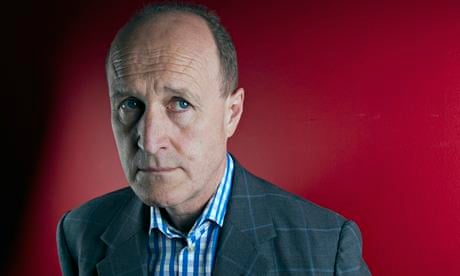Last week I witnessed the unveiling of an extraordinary sculpture at Heathrow's new Terminal 2. Slipstream is inspired by the aerodynamic path of a stunt plane and it's an apparently fluid, 78-metre, 77-ton "whale" of riveted aluminium that's emerged from the imagination of its creator, Richard Wilson. It will certainly impress tourists and add lustre to Britain's creative image abroad.
But its economic benefit is not really why many of us loved it. We found it exciting, elevating and romantically redolent of our flying and manufacturing past. So Slipstream reminded us that the primary reason we make both public and private investments in the arts is for the inherent value of culture: life-enhancing, entertaining, defining of our personal and national identities.
When I bang the drum for this investment, with national and local government, with philanthropists, charities and companies, a consensus is emerging as to why this is so important. It starts with the inherent value of culture, continues through all the social and educational benefits and only ends with the economic. Otherwise we fall into Oscar Wilde's celebrated definition of a cynic: knowing the price of everything and the value of nothing.
We instinctively know this. Imagine society without the civilising influence of the arts and you'll have to strip out what is most pleasurable in life – and much that is educationally vital. Take the collective memory from our museums; remove the bands from our schools and choirs from our communities; lose the empathetic plays and dance from our theatres or the books from our libraries; expunge our festivals, literature and painting, and you're left with a society bereft of a national conversation … about its identity or anything else.
Then there's society – and I think we're all now agreed that there is such a thing. Although the arts do not pretend to be a frontline health service, we're coming to understand how they can function very effectively in a complementary role. Look at the work of orchestras such as the Royal Philharmonic, which runs workshops for people with dementia, or the collaboration between the Royal Liverpool Philharmonic and NHS Mersey Trust, which puts musicians in residence to work with adults with a complex range of mental health issues. There's the Sick! Festival (confronting, as they put it, the physical, mental and social challenges of life and death). There's the popularity of the Books on Prescription scheme in GPs' surgeries or the work done by Colchester and Ipswich museums for homeless people.
All these projects are supported by Arts Council England. That is, by you and me, via our taxes or our purchase of lottery tickets. In 18 years, the national lottery has transformed arts provision across so many of our communities and has been particularly valuable while government funding has been under pressure. Great art and culture really can be, as it should be, for everyone.
There's a strong relationship between arts and cultural engagement and educational attainment. We see an improvement in literacy when young people take part in drama and library activities, and better performance in maths and languages when they take part in structured music activities.
That's partly why the Department for Education is including arts subjects with the core subjects in maths, science, languages and the humanities in the first round of reformed GCSEs in two years' time. And our universities are supporting art galleries (Northumbria/East Anglia/Teesside), theatres (Derby), craft centres (Sunderland), museums (Oxford/Cambridge) because they recognise the value of culture to their students and to their locality.
The inherent value of culture, its contribution to society, its symbiotic relationship with education and, yes, its economic power (but in that order) … this is what we call the holistic case for public support of arts and culture. The Arts Council's annual survey of public attitudes to this investment shows support rising significantly this year. Let's keep the debate going. I predict that in the runup to the next election, where economic issues will dominate, the arts will have more to say for themselves than ever before, particularly in relation to two intriguing elements: the creative industries and the thinking about our cities of the future.
The creative industries have been growing three times as fast as the national economy. Last summer, in an infamous list of priority sectors for growth, the Department for Business, Innovation and Skills left them out but included offshore wind turbines, for God's sake. They won't do that again. As the creative sector grows in importance, the role of arts and culture as an incubator of talent will be better understood. Think Steve McQueen going from Turner prizewinner, or Danny Boyle from apprentice directing at the Royal Court theatre, to delivering Oscar-winning movies.
It's increasingly accepted that cities are going to deliver our economy's growth in the future. Greg Clark from the Conservatives and Andrew Adonis from Labour are both doing some good thinking about how to turbocharge urban centres. They'll be aware of how the Turner Contemporary has led the regeneration of Margate, how the Nottingham Contemporary is at the heart of a creative quarter, how festivals drive tourism in Liverpool. The new city quarters where young people want to live, work and create companies need a soul as well as a sewer.
In his budget this year, George Osborne introduced a tax credit for the performing arts. This essentially recognised that the arts are part of the creative industries – film, television drama and computer games already receive the same concession. And why are these sectors helped in this way? Because they don't only matter to the economy, they critically represent an investment in our quality of life. I call that a virtuous circle – something which is, by definition, holistic.
Sir Peter Bazalgette is chair of Arts Council England



